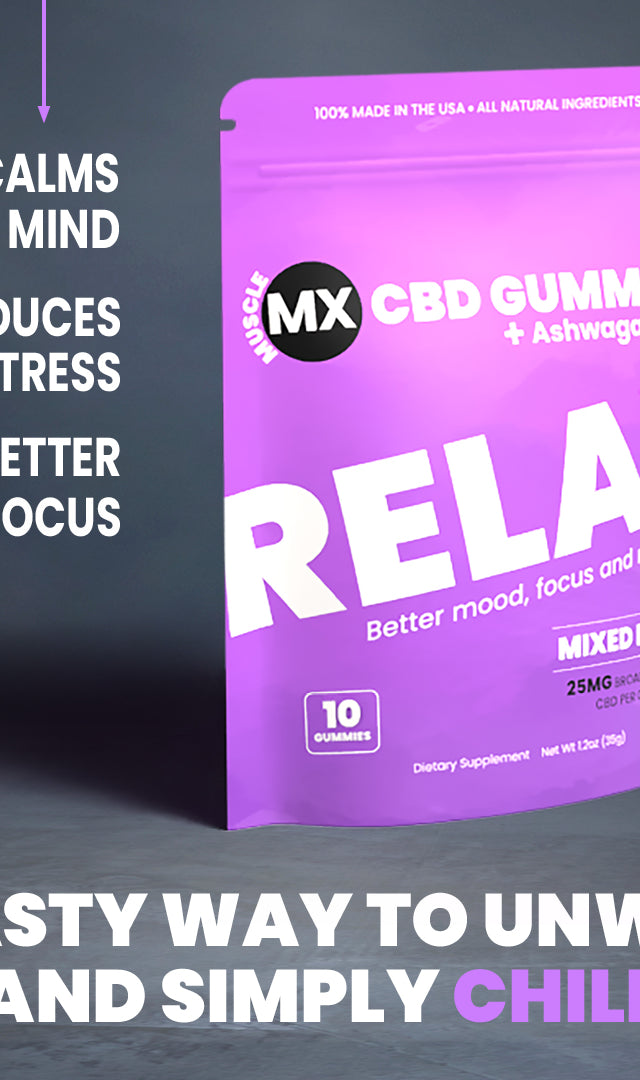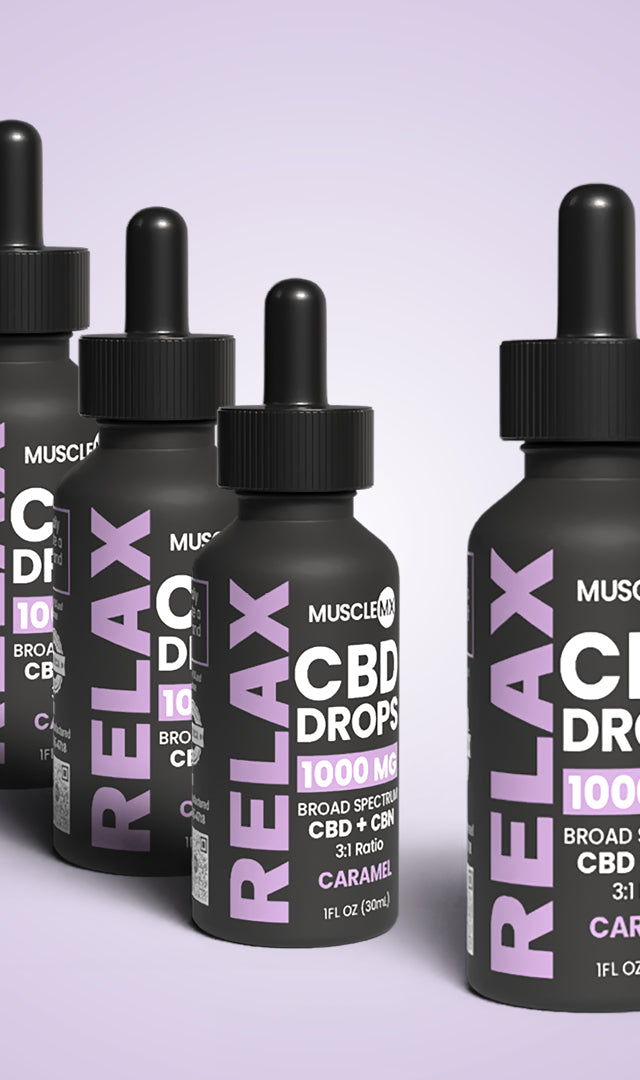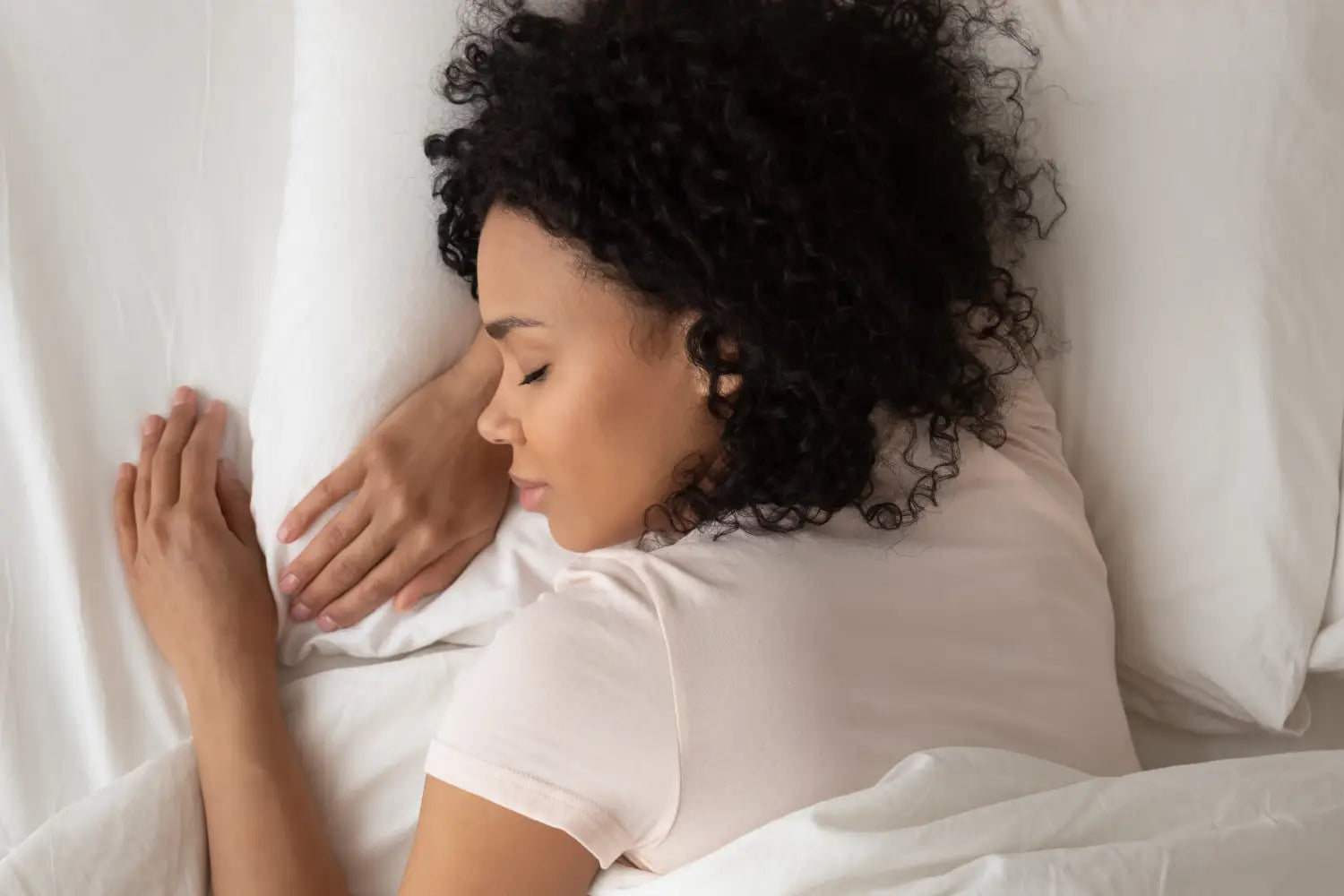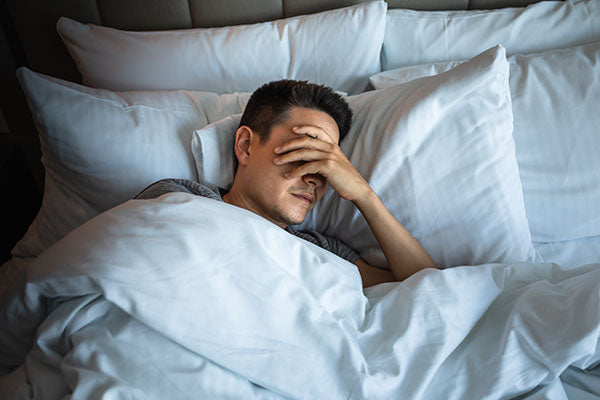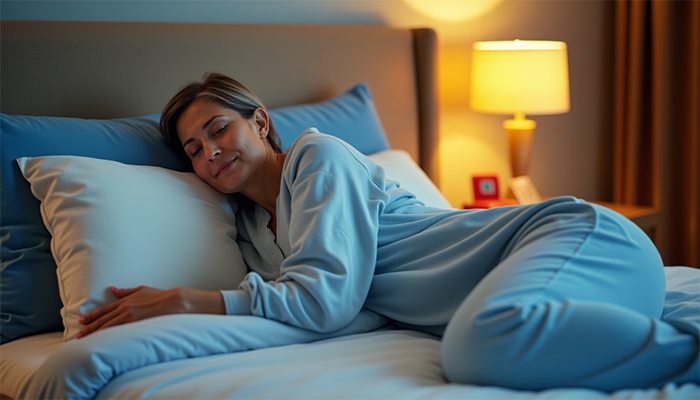The Truth About Taking Ashwagandha Before Bed: A Sleep Expert Explains
Can ashwagandha before bed help you sleep better? Science suggests this ancient herb packs more punch than most people realize. Studies have shown that ashwagandha helps people fall asleep faster and sleep better within weeks.
Ashwagandha's power as an adaptogen that promotes sleep has caught everyone's attention over the last several years, and with good reason too. A review of five studies revealed that ashwagandha supplements boost sleep quality for people with and without insomnia. The herb increases how long people sleep and reduces time spent tossing and turning in bed. The herb's scientific name (Withania somnifera) tells us something interesting - "somnifera" comes from Latin and means "sleep-inducing".
This piece will help you learn about what makes ashwagandha work for sleep. We'll get into the research supporting its benefits, when to take it, how much to take, and what side effects to watch out for. You'll discover if taking ashwagandha before bed might help you sleep better, whether you have trouble sleeping sometimes or just want to improve your sleep quality.
What makes ashwagandha a sleep-promoting herb
The secret behind ashwagandha's sleep-boosting powers lies in its unique biological effects on our bodies. This ancient herb works especially well when you take it before bed.
Ashwagandha as an adaptogen
Ashwagandha belongs to a special class of herbs called adaptogens that help our bodies handle stress better. These herbs don't just sedate you. They normalize physiological processes and help your body adapt to changing circumstances while staying balanced during stressful times.
Ashwagandha stands out because it tackles why sleep problems happen - stress. Your body gets the right conditions for natural, restorative sleep when it handles stress better. Research confirms this adaptogenic property and shows that ashwagandha helps reduce stress and anxiety symptoms that often disrupt quality sleep.
How it affects cortisol and stress
Taking ashwagandha before bed powerfully affects cortisol – your body's main stress hormone. Clinical trials showed that ashwagandha can cut morning cortisol levels by 23%, and some studies revealed dramatic drops of 66-67%.
Your hypothalamic-pituitary-adrenal (HPA) axis, which controls stress response, gets direct support from ashwagandha. Your stress response becomes less reactive to triggers, and then your sleep quality and duration improve.
An 8-week study showed participants taking ashwagandha had better improvements in anxiety, morning cortisol, pulse rate, and blood pressure compared to those on placebo. These stress-reducing effects create perfect conditions for better sleep.
GABA and serotonin modulation
Sleep benefits come directly from ashwagandha's influence on your brain's key neurotransmitters. Research shows ashwagandha has GABA-mimetic activity. This means it works like gamma-aminobutyric acid – your brain's main calming neurotransmitter that helps you relax and sleep.
Studies reveal that ashwagandha extract binds to GABA receptors, specifically GABAAρ1 receptors, very effectively. This binding boosts GABA's effects and leads to:
- Increased NREM sleep (deep sleep phase)
- Improved delta-wave sleep time
- Reduced sleep latency (time to fall asleep)
Ashwagandha also works with serotonin, a vital neurotransmitter for mood regulation and sleep-wake cycles. This combined action on both GABA and serotonin pathways explains why ashwagandha works so well for better sleep when taken before bed.
What research says about taking ashwagandha before bed
Research shows amazing results when you take ashwagandha before bed. New studies continue to prove this herb's ability to help people sleep better.
Clinical trials on sleep latency and quality
Recent clinical trials show remarkable improvements in how people sleep. A randomized study of 80 participants over 8 weeks proved that ashwagandha root extract helped people fall asleep faster and sleep longer with better quality. The results were impressive in another 6-week trial where people taking standardized ashwagandha extract reported a 72% improvement in sleep quality, while the placebo group only showed 29% improvement.
A systematic review of five randomized controlled trials with 400 participants confirmed that ashwagandha extract helps improve overall sleep. People got better results with higher doses (≥600 mg/day) and when they took it for 8 weeks or longer.
Differences in effects for people with and without insomnia
The herb helps everyone sleep better, but people with insomnia see better results. Studies show that insomnia patients experienced much bigger improvements in their sleep compared to healthy individuals. The meta-analysis backs this up, showing stronger effects in adults diagnosed with insomnia.
Healthy people who weren't sleeping well also saw real improvements. Research found better sleep efficiency, longer sleep duration, and more total sleep time in healthy adults who had trouble sleeping.
Impact on mental clarity and morning alertness
The most interesting finding is how ashwagandha affects you when you wake up. Unlike other sleep aids that leave you groggy, ashwagandha helps you feel more alert in the morning. A meta-analysis of three trials with 170 participants showed people felt mentally sharper when they woke up compared to those taking a placebo.
This combination of better sleep without morning drowsiness makes ashwagandha a great choice if you want natural sleep support that won't affect your daytime activities.
When and how to take ashwagandha for sleep
The right timing and way to take ashwagandha before bed can help you get better sleep. Let me walk you through the practical ways to use this herb effectively.
Best time of day to take it
You won't find a single perfect time to take ashwagandha. Research hasn't pinpointed whether morning or evening works better. But if sleep is your goal, you might want to take it 1-2 hours before bedtime.
Some people get a mild energy boost when they first start taking ashwagandha. You might want to take it earlier in the day until you know how your body reacts. New users should try it during daytime to see how it affects them.
The time you pick matters less than taking it regularly. Pick a time that fits your daily routine. Taking it with food can help avoid stomach issues.
Forms of ashwagandha: capsules, powder, tea
You can find ashwagandha in several forms:
- Capsules/tablets: These make it easy to get the right dose, usually between 225-600mg. Perfect if you want consistent amounts.
- Powder: The traditional form uses dried root, leaf, or both. Mix it with water, milk, ghee, or honey. People usually take 1-2 grams daily.
- Liquid extract: This gets absorbed faster. Most people take 1-2ml, 2-3 times each day.
- Tea: One or two cups a day does the trick.
- Gummies: A tasty option if you don't like pills or powder.
Recommended dosage ranges
Studies show doses between 250-600mg daily work well. For better sleep:
- Research points to 300-600mg of root extract daily.
- Better results came from higher doses (600mg daily), especially after 8 weeks.
- Some people slept better with just 120mg of standardized extracts.
Start with smaller doses. Talk to your doctor before taking more.
How long does ashwagandha take to work
Ashwagandha isn't like typical sleep aids that work right away. Most people sleep better after 2-4 weeks of regular use.
Studies usually run for 6-12 weeks, and people see the best results after 8 weeks or more[134]. This herb helps your body handle stress over time instead of forcing you to sleep like other medications.
Your stress levels might improve in days, but better sleep usually takes longer.
Safety, side effects, and who should avoid it
Ashwagandha can help you sleep better, but you need to understand its safety profile before adding it to your bedtime routine. Let's get into what you should know about potential risks of taking ashwagandha at night.
Common side effects
People usually handle ashwagandha well for short periods (up to 3 months), though mild side effects can pop up. The most common problems include:
- Digestive discomfort: stomach upset, loose stools, or diarrhea
- Drowsiness or sleepiness (which might actually help with sleep)
- Nausea and occasional vomiting
- Headaches
Liver problems are rare but more serious. Several cases have linked ashwagandha to liver injury, especially with long-term use or higher doses. That's why experts suggest limiting supplements to three months at a time.
Medication interactions
Ashwagandha doesn't play nice with certain medications. Here are the main concerns:
Thyroid medications: Ashwagandha might raise thyroid hormone levels, which could become excessive when combined with thyroid medications.
Diabetes medications: Blood sugar could drop too low if you mix ashwagandha with diabetes drugs.
Sedatives and sleep aids: The herb might make drowsy medications work too well, leading to extreme sedation or breathing issues.
Blood pressure medications: Your blood pressure might dip too low since ashwagandha can decrease it further when taken with antihypertensive drugs.
Immunosuppressants: The herb could work against these medications by stimulating your immune system.
Who should not take ashwagandha
Ashwagandha isn't right for everyone. Skip this herb if you:
- Are pregnant (might increase miscarriage risk)
- Are breastfeeding
- Have autoimmune conditions (lupus, rheumatoid arthritis, multiple sclerosis)
- Have thyroid disorders
- Have hormone-sensitive prostate cancer
- Have liver disease
- Are scheduled for surgery (stop at least two weeks before)
Combining ashwagandha with other sleep aids like CBD or CBN
You should think over mixing ashwagandha with CBD or CBN for sleep. These supplements usually work well on their own with few side effects. All the same, mixing any supplements needs careful consideration.
The combination might help you sleep better since these substances can boost each other's effects. But some people might feel too sedated from taking them together.
Start with small doses of each and slowly increase them as needed. Your healthcare provider should know about any supplement combinations you're planning, especially if you take other medications.
Final Thoughts
Ashwagandha emerges as a natural solution that helps people sleep better. This ancient herb works differently from regular sleep medications. It doesn't just make you drowsy - it tackles the root mechanisms of poor sleep by lowering stress hormones and balancing brain chemicals like GABA and serotonin.
Research without doubt backs up how well ashwagandha works to improve sleep. Studies show it helps both people with insomnia and healthy adults who have trouble sleeping, though people diagnosed with sleep problems see better results. The most convincing data suggests taking 300-600mg daily for at least 8 weeks will give optimal benefits.
Most sleep supplements leave you feeling groggy when you wake up. Ashwagandha does the opposite - it helps you sleep better and feel more alert in the morning. This makes it a great alternative to standard sleep medications.
Safety should be your top priority with any supplement. While most people tolerate ashwagandha well, it's not suitable for everyone. Pregnant women, people with autoimmune conditions, and those on certain medications should stay away from it. On top of that, it helps to start with smaller doses to avoid side effects.
Your personal health situation will determine if ashwagandha is right for your bedtime routine. Many people who don't sleep well because of stress find this adaptogenic herb to be a gentle, science-backed solution without the downsides of prescription drugs. A quick chat with your healthcare provider will help you get the benefits while staying safe.
FAQs
Q1. How does ashwagandha improve sleep quality? Ashwagandha improves sleep quality by reducing stress hormones like cortisol, modulating neurotransmitters such as GABA and serotonin, and helping the body adapt to stress. These effects can lead to faster sleep onset, increased total sleep time, and improved sleep efficiency.
Q2. What is the recommended dosage of ashwagandha for sleep? The recommended dosage of ashwagandha for sleep typically ranges from 300-600mg daily. Clinical studies have shown that higher doses (600mg daily) tend to provide greater benefits, especially when taken consistently for at least 8 weeks.
Q3. When is the best time to take ashwagandha for sleep? While there's no definitive answer, taking ashwagandha 1-2 hours before bedtime is often effective for sleep benefits. However, some people may experience a mild energy boost initially, so it's advisable to experiment with timing to find what works best for you.
Q4. Are there any side effects of taking ashwagandha? While generally well-tolerated, some people may experience mild side effects such as digestive discomfort, drowsiness, or headaches. Rare but more serious concerns include potential liver problems with prolonged use or high doses. It's important to consult a healthcare provider before starting any new supplement regimen.
Q5. Can ashwagandha be combined with other sleep aids? Combining ashwagandha with other sleep aids like CBD or CBN may enhance sleep benefits, but it should be done cautiously. Start with lower doses of each component and gradually increase as needed. Always consult a healthcare provider before combining supplements, especially if you're taking other medications.
References
https://www.healthycell.com/blogs/articles/how-long-does-it-take-ashwagandha-to-work?srsltid=AfmBOoqZWgWGH1jTTZIWnANtKYMDvIazH_pwJJTGGUaNg36q5XhfMM23
https://nutritionandmetabolism.biomedcentral.com/articles/10.1186/s12986-025-00902-7
https://www.webmd.com/vitamins-and-supplements/ashwagandha
https://www.sciencedirect.com/science/article/pii/S2405844024129167
https://pmc.ncbi.nlm.nih.gov/articles/PMC9007714/
https://www.healthline.com/health/sleep/ashwagandha-for-sleep
https://pubmed.ncbi.nlm.nih.gov/32818573/











































